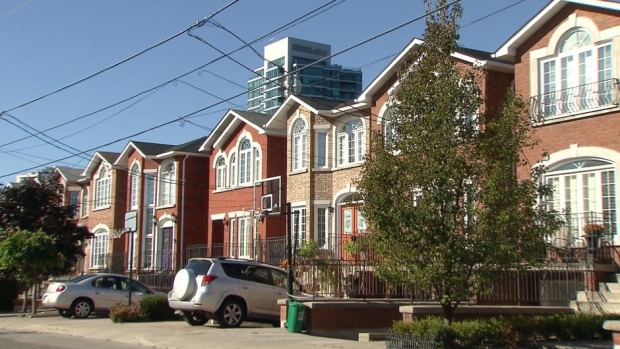
US Existing-Home Sales Decline as Rates Keep Buyers Sidelined
Sales of previously-owned homes in the US fell in March from a one-year high, underscoring the lingering impact of high mortgage rates and elevated prices.
Latest Videos
The information you requested is not available at this time, please check back again soon.

Sales of previously-owned homes in the US fell in March from a one-year high, underscoring the lingering impact of high mortgage rates and elevated prices.

Mortgage rates in the US climbed past 7% for the first time this year.

Mortgage shopping isn’t getting much easier these days.

Blackstone Inc. collected more fees from big retail funds and credit strategies during the first quarter, compensating for the slower pace of deal exits.
Ken Griffin’s Citadel and Citadel Securities will move their London base to a new office tower on the edge of the City of London, a major expansion of their space in the latest sign of the firm’s growing heft.
Mar 3, 2017

Whether you are buying a home in Toronto, a ridiculously hot market, or any other part of Canada, owning your home is likely the largest financial transaction many of us will make. Add to that a hugely emotional one. Putting the two together suggests buying a home is likely going to instill fear and excitement at the same time. While most of would likely love to own our own home, few of us will get excited about the mortgage associated with it. For many living very close to the margin, there are a few basic considerations.
Regardless of your price range, here are few dos and don’ts to consider:
1. Just because you can doesn’t mean you should. Just because you qualify for a large mortgage doesn’t mean you should take it. Buying a home depends a great deal on affordability and you need to know your numbers. This is a classic example of bigger isn’t always better. Before you even start to look for a home, get pre-approved for a mortgage so you know exactly what you can afford. The approval will depend on your credit rating, income and how much money you can put down.
2. Learn from my mistake. Early on in our marriage, we bought too much home. On paper we could afford it but when it came to lifestyle and all the additional costs to maintain a home, we were stretched, uncomfortably so. Creating a budget that is realistic strips out the emotion while appreciating not everything has to be done within the first six months.
3. Don’t forget about fixed costs. The costs that come with homeownership that are considered to be fixed and non-negotiable – utilities, taxes, condo fees and closing costs – add up, ranging anywhere from three to five per cent of the value of the home. Closing costs can sneak up on you when you consider land transfers, lawyer fees, moving costs, inspection and required renovations.
4. Do get serious about an emergency fund. The roof will leak, the car will break down and you could lose your job – serious financial “what if” scenarios that can’t be overlooked nor the negative financial impact underestimated.
5. Once you decide to buy do plan on living there for at least seven years. Buying and selling is exciting, but expensive. Being a real estate junkie, like any bad habit, often doesn’t end well.
Financial maturity comes with home ownership and it is in your best interest to take your time. There is absolutely nothing wrong with renting because no one wants to be house poor.